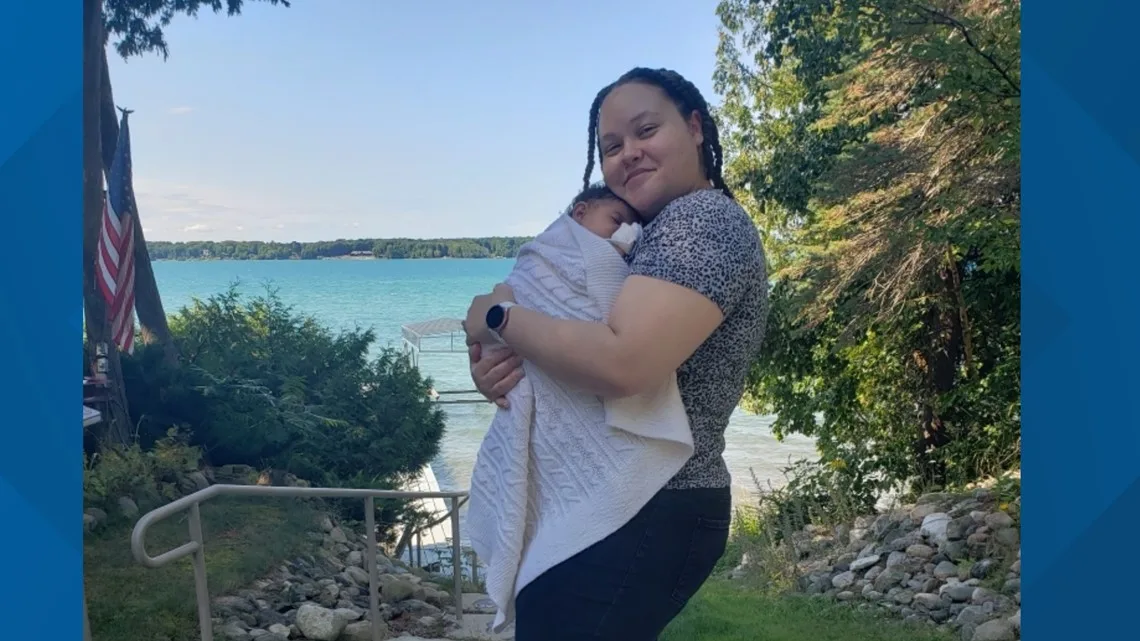
According to BlackBreastfeedingWeek.org, 75% of white moms breastfed versus 58.9% of black moms.
GRAND RAPIDS, Mich — When Aubryana Branson’s daughter, Malaney, was born, she knew she wanted to breastfeed.
“It was very rewarding, but difficult,” said Branson, “Something that I would do over again every single time.”
Her mom breastfed, but Branson said she never saw her aunts or other black women in her life breastfeed.
“I don’t feel like it’s normalized within the black community to breastfeed,” said Branson, “I don’t see a lot of representation. I don’t see people that look like me, or look like my family, that breastfeed.”
Black Breastfeeding Week is focused on bringing awareness to a racial disparity in breastfeeding rates. According to the group behind the week, 75% of white moms have breastfed versus 58.9% of black moms.
“Maybe because of the disparities that we had back in the day, it is traumatizing,” said Christy Bell, a community health worker with Corewell Health, “So, you didn’t talk about those things.”
One of the reasons to focus on the disparity, according to Black Breastfeeding Week, is the high black infant mortality rate. They say black babies are dying at twice the rate of white babies. That means black babies are disproportionately born too small, too sick or too soon for a number of reasons, resulting in babies who need the benefits of breast milk even more.
“We have to look at the reasons why they don’t want to breastfeed, and why they’re not getting support from their family,” said Devon Sutherland, a lactation consultant, “And how we can change that. Having conversations with a partner, having conversations with their support people, about why breastfeeding is important.”
There are plenty of resources available to West Michigan moms for breastfeeding. The Maternal Infant Health Program offers support for mothers and babies who quality for Medicaid, with things like breastfeeding, transportation, baby supplies and more.
“My job as a CHW is to talk about those things to say, hey, you know, let’s think about breastfeeding,” said Bell, “These are the good things about it. These are the bad things about it. Providing education, providing this support. I use in my own stories, let them know it’s totally fine to breastfeed.”
For Branson, she wants to help normalizing breastfeeding for black moms.
“I’m big on if I don’t see representation, I’m going to be that representation,” said Branson, “So, if I don’t see it, I’m gonna be it. And I think that’s a big model that anybody should have.”
RELATED VIDEO: Back-to-school preps: Healthy snack options
►Make it easy to keep up to date with more stories like this. Download the 13 ON YOUR SIDE app now.
Have a news tip? Email news@13onyourside.com, visit our Facebook page or Twitter. Subscribe to our YouTube channel.


